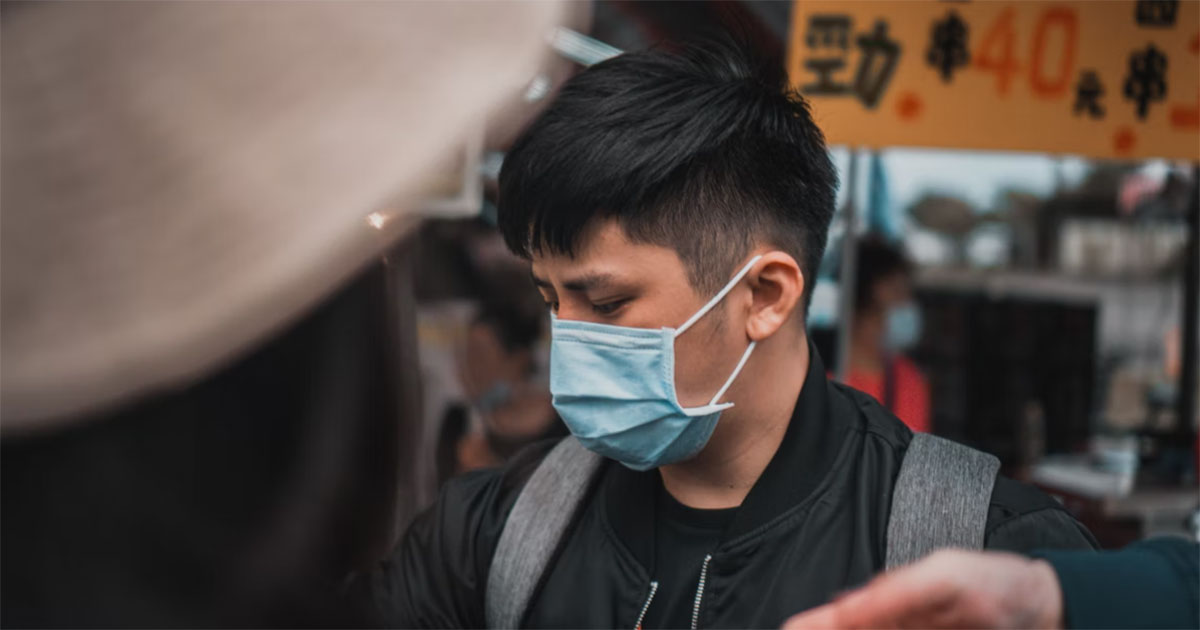Follow us on Telegram for the latest updates: https://t.me/mothershipsg
British academics have found that men look more attractive in protective masks.
But the good news appear kind of sobering: Both men and women were judged to look better with a face covering obscuring the lower half of their faces -- meaning they look better if their faces were not fully seen.
Nonetheless, this finding from the United Kingdom surprised Cardiff University researchers.
And when masks of various makes were pitted against one another, the researchers also discovered that a face covered with a disposable-type surgical mask was likely to be deemed the most appealing.
Face mask made people look less attractive previously
Michael Lewis, from Cardiff University’s school of psychology, an expert in faces and one of the study's authors, said research carried out before the pandemic had found that medical face masks reduced attractiveness because they were associated with disease or illness, according to The Guardian.
“We wanted to test whether this had changed since face coverings became ubiquitous and understand whether the type of mask had any effect,” he said.
“Our study suggests faces are considered most attractive when covered by medical face masks. This may be because we’re used to healthcare workers wearing blue masks and now we associate these with people in caring or medical professions. At a time when we feel vulnerable, we may find the wearing of medical masks reassuring and so feel more positive towards the wearer.”
How research was carried out
The first part of the research was carried out in February 2021.
By this time, the British population had grown accustomed to face masks in some circumstances.
A total of 43 women -- psychology undergraduates -- were asked to rate on a scale of one to seven the attractiveness of 160 images of male faces without a mask, wearing a plain cloth mask, a blue medical face mask, and holding a plain black book covering the area a face mask would hide.
The participants said those wearing a cloth mask were significantly more attractive than the ones with no masks or whose faces were partly obscured by the book.
But the normal, disposable kind of surgical mask made the wearer look even better.
What can be gleaned from latest results
“The results run counter to the pre-pandemic research where it was thought masks made people think about disease and the person should be avoided,” said Lewis.
“The pandemic has changed our psychology in how we perceive the wearers of masks. When we see someone wearing a mask we no longer think ‘that person has a disease, I need to stay away’.
A 2016 study in Japan found a "sanitary-mask effect".
It was found that people associated medical masks with disease, perceiving masked faces as less healthy and less attractive.
The bigger finding, according to Lewis, is that evolutionary psychology has changed.
He claimed that previously any cues to disease would be a big turn-off, but now, that has apparently changed.
What masks does to faces: Force brains to fill in gap
Lewis said it was also possible that masks made people more attractive because they directed attention to the eyes.
He said other studies had found that covering the left or right half of a face lets the brain fills in the missing gaps and exaggerates the overall impact, thus making people look more attractive.
The advantage for covered faces was consistent with general findings that covering facial features increases attractiveness, which is the effect of occlusion.
This was regardless of which features are covered and the "base attractiveness" of the face, the authors of the study said.
The advantage of medical masks goes "beyond just hiding undesirable features", the authors said.
"It is possible that the additional advantage for medical masks comes from their associations with medical professionals."
Top photo via Unsplash
If you like what you read, follow us on Facebook, Instagram, Twitter and Telegram to get the latest updates.
